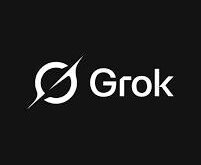Software as a Service (SaaS) has transformed how businesses operate by providing scalable, cost-effective solutions for various functions, from customer relationship management to project management. SaaS has revolutionized the way businesses access and utilize software applications. With SaaS, companies can avoid the complexities of traditional software installation and maintenance, reducing the need for on-premises hardware and extensive IT resources. This streamlined approach allows organizations to focus on their core competencies while benefitting from frequent updates, scalability, and ease of use that SaaS provides. As organizations continue to embrace SaaS cloud solutions, it’s crucial to understand and address the security gaps that can arise within these environments.
SaaS can save users time and money and offers rapid response to dynamic business demands. While SaaS offers numerous advantages, it also presents unique challenges that require proactive measures to ensure data privacy, integrity, and overall security. But SaaS customers require comprehensive security, often based on compliance mandates, for sensitive data stored in SaaS clouds. As organizations increasingly migrate their critical operations to cloud-based SaaS platforms, they must address a myriad of security concerns to ensure the confidentiality, integrity, and availability of their data. Organizations must be aware of these potential gaps to adequately protect sensitive data and maintain regulatory compliance.
Let’s look at the key security gaps that have evolved into challenges:
Data Breaches: SaaS applications store vast amounts of sensitive data, making them prime targets for cybercriminals. A single breach can expose confidential customer information, financial data, and proprietary business insights. The shared responsibility model between the SaaS provider and the client means that security measures must be a collaborative effort.
Access Control: Misconfigured access controls can lead to unauthorized users gaining access to critical data and applications. Poorly managed permissions and user roles can result in data leaks and breaches.
Data Loss: The risk of data loss is heightened when relying on a third-party SaaS provider. While providers typically implement disaster recovery mechanisms, organizations must still have robust backup strategies to safeguard against accidental data loss or provider outages.
Compliance Challenges: Different industries are subject to various compliance regulations, such as GDPR, HIPAA, or PCI DSS. Failure to properly configure and secure SaaS applications can lead to compliance violations and hefty fines.
Vendor Lock-In: Organizations can become dependent on a particular SaaS vendor, making it challenging to migrate to another provider or revert to an on-premises solution if needed. This vendor lock-in can limit flexibility and bargaining power.
Insider Threats and User Behavior: Not all security threats originate from external actors. Insider threats, whether intentional or accidental, pose a significant risk. Employees with excessive privileges, lax security practices, or insufficient training can compromise data integrity.
Integration and Interoperability: Ensuring seamless integration while maintaining security can be complex. Misconfigured APIs, unauthorized data flows, and inadequate communication protocols can lead to vulnerabilities.
High-performance encryption and key management solution provide ideal cloud security for SaaS
Many organizations opt for full disk encryption (FDE) which involves encrypting the entire hard drive or storage device, ensuring that all data stored on it remains confidential and protected from unauthorized access. While FDE offers several benefits for data security, there are also some disadvantages, particularly when applied to Software as a Service (SaaS) cloud environments:
- Performance Impact
- Limited Control
- Key Management Complexity
- Data Portability and Vendor Lock-In
- Backup and Recovery Challenges
- Collaboration and Sharing
- Regulatory and Compliance Considerations
- Usability and User Experience
- Data Recovery and Forensics
- Cost
Thales is among the organizations providing robust SaaS cloud data security solutions. CipherTrust Transparent Encryption and Key Management as a Service or KMaaS help:
- Enables to provide customer-specific keys
- Provides comprehensive access controls to give customers the highest assurance
- Gives security intelligence you need to detect compromised credentials faster!
- SaaS providers integrate and deploy encryption, tokenization and key management to enhance their service offerings
- Quickly overcome typical security and compliance end-customer objections
- Accelerate SaaS revenue growth
SaaS cloud technology has reshaped the business landscape, offering unparalleled efficiency and flexibility. However, these benefits come with inherent security challenges that organizations must address to safeguard their valuable data and maintain their reputation. By understanding the security gaps in SaaS cloud and implementing robust security measures, companies can confidently embrace the advantages of SaaS while minimizing the risks associated with data breaches, unauthorized access, and compliance violations. The key lies in proactive risk management, continuous monitoring, and a commitment to staying informed about evolving security threats in the digital landscape.
 Newspatrolling.com News cum Content Syndication Portal Online
Newspatrolling.com News cum Content Syndication Portal Online





